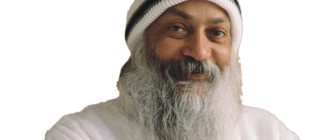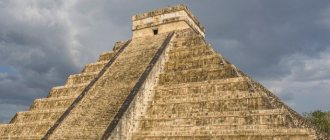What life is, what its purpose and meaning are, interests every individual. Over the course of many centuries, attempts to comprehend human existence have led to the creation of various philosophical and religious movements. Each concept and teaching relates to the issues of life in its own way, forming new approaches to its understanding. A detailed philosophical analysis of private views on this phenomenon will help you try to understand the basic rules for building a person’s life.
Philosophy
Philosophy of life - basic ideas
The philosophy of life united various directions, united by common ideas. It arose as a reaction to outdated philosophical traditions determined by rationalism. The ideas of the philosophy of life are that being is the fundamental principle, and only through it can something be comprehended. All rational methods of understanding the world are in the past. They are being replaced by irrational ones. Feelings, instincts, faith are the main tools for comprehending reality.
Irrationalism and philosophy of life
Irrationalism is based on the uniqueness of human experience, the importance of instincts and feelings, as opposed to rational knowledge. It, like romanticism in literature, became a reaction to rationalism. Reflected in the historicism and relativism of Wilhelm Dilthey. For him, all knowledge was conditioned by a personal historical perspective, so he asserted the importance of the humanities.
Johann Georg Hamann, a German philosopher, rejected the process of reflection and sought truth in feeling and faith. Personal confidence is the final criterion of truth. His colleague in the literary group Sturm und Drang, Friedrich Jacobi, exalted the certainty and clarity of faith at the expense of intellectual knowledge.
Friedrich Schelling and Henri Bergson, concerned with the uniqueness of human experience, turned to intuitionism, which “sees things invisible to science.” Reason itself was not annulled, it lost its leading role. Instinct is the engine that underlies existence. Pragmatism, existentialism, irrationalism are a philosophy of life that has expanded the understanding of human life and thought.
The meaning of human life - philosophy
The problem of the meaning of life in philosophy has been and remains relevant. Philosophers of different directions have been looking for answers to the questions, what is the meaning of life and what makes life meaningful over the centuries:
- Ancient philosophers were unanimous in the opinion that the essence of human life lies in the desire for good and happiness. For Socrates, happiness is equal to the improvement of the soul. For Aristotle - the embodiment of human essence. And the essence of a person is his soul. Spiritual work, thinking and knowledge lead to the achievement of happiness. Epicurus saw meaning (happiness) in pleasure, which he represented not as pleasure, but as the absence of fear, physical and spiritual suffering.
- In the Middle Ages in Europe, the idea of the meaning of life was directly related to traditions, religious ideals and class values. There is a similarity here with the philosophy of life in India, where repeating the life of ancestors and maintaining class status are key.
- Philosophers of the 19th and 20th centuries believed that human life is meaningless and absurd. Schopenhauer argued that all religions and philosophies are only attempts to find meaning and make a meaningless life bearable. Existentialists, Sartre, Heidegger, Camus, equated life with absurdity, and only a person could give it some meaning through his own actions and choices.
- Modern positivist and pragmatic approaches argue that life takes on the meaning that is important for an individual within the framework of his reality. It can be anything - achievements, career, family, art, travel. What a particular person values his life for and what he strives for. This philosophy of life is very close to many modern people.
Philosophy of life and death
The problem of life and death in philosophy is one of the key ones. Death as a result of the process of life. Man, like any biological organism, is mortal, but unlike other animals, he is aware of his mortality. This pushes him to think about the meaning of life and death. All philosophical teachings can be divided into two types:
- There is no life after death
. After death there is no existence; along with a person’s body, his soul and his consciousness perish. - There is life after death
. A religious-idealistic approach, life on earth is a preparation for the afterlife or reincarnation.
LIFE
LIFE - 1) A term of classical philosophy that captures the way of being of entities endowed with internal activity, in contrast to those requiring an external source of movement and evolution of inanimate objects. Within the framework of hylozoism, life is thought of as an immanent property of primordial matter, virtually synonymous with being, in contrast to death as non-existence (compare with the idea of “inert” matter within the framework of mechanism, which presupposes one or another version of the prime mover as a source of “force” , which sets it in motion). 2) The concept of non-classical philosophy, which underlies the philosophy of the “life world” and denotes the intuitively comprehended integrity of the reality of being: the living as natural as opposed to the constructed as artificial (Nietzsche); “vital impulse” as the form-creation of the cosmic force of J. (Bergson); Life as a direct internal experience, unique in its content and revealed in the sphere of spiritual-communicative or spiritual-historical experience (Dilthey, Simmel). 3) A term of natural science, denoting a way of existence of systems that involves metabolism, irritability, the ability for self-regulation, growth, reproduction and adaptation to environmental conditions. Life is the object of study in many natural sciences, but primarily in biology. The question of the essence of life and its definition has been and remains the subject of debate in various philosophical and natural science areas. From the second half of the 20th century. Two main approaches to the definition of life began to clearly appear—substrate and functional. Supporters of the first interpretation of the essence of life pay attention to the substrate (protein or DNA molecules) that is the bearer of the basic properties of living things. The latter consider life from the point of view of its basic properties (metabolism, self-reproduction, etc.). Modern natural science has significantly enriched the understanding of the nature of the material carrier of life, which is an integral system of interconnected biopolymers—proteins, nucleic acids, etc. Modern science has substantiated the position of the diversity of life forms and the fact that their carriers are living systems of varying degrees of complexity and organization . At the same time, the following main levels of organization of living things are distinguished: organismal, population-species, biocenotic and biosphere. The focus of researchers on understanding the characteristics of one or another level of organization of living things has led to the isolation of levels of knowledge and its study. At present, the most effective level has proven to be that associated with the knowledge of the molecular foundations of life. Its implementation has led biology to epoch-making discoveries in the field of knowledge of the molecular basis of life and their universality for all living things. The possibilities of this level of research are still far from being realized, however, the development trends of modern scientific knowledge have led it to the need to move to the study of even deeper structures and processes of living things. The object of research is the atomic and electronic level of organization of living structures. Thus, ideas about the atomic and electronic states of living structures, in particular, J. Bernal considered it necessary to include in the definition of the essence of life: “Life is partial, continuous, progressive, diverse and interacting with the environment, the self-realization of the potential capabilities of the electronic states of atoms.” Another trend in understanding the essence of life is the study of the features of its manifestation at supraorganism levels of the organization of living things. This trend was substantiated by Vernadsky. In the system of his doctrine of living matter, he emphasized the importance of studying “totals of organisms”, their complexes, which will allow us to discover “new properties of life”, its “manifestations” at the biocenotic and biosphere level. Today, the need for such research is determined not only by cognitive tasks, but also by the tasks of preserving life on Earth. Views on the problem of life that differ from the natural sciences are offered by religious doctrines, as well as various philosophical concepts that emphasize the problems of man and his purpose in the world, as well as specifically comprehending the phenomenon of death. (see also: PHILOSOPHY OF LIFE, LIFE WORLD).
Source: Latest philosophical dictionary on Gufo.me
Meanings in other dictionaries
- life - life I f. 1. A special form of existence of matter that arose at a certain stage of its development, the main feature of which and its difference from inanimate objects is metabolism. 2. The state of the body in the stages of growth, development and destruction. Explanatory Dictionary by Efremova
- life - Life, life, life, lives, life, lives, life, life, life, lives, life, lives Zaliznyak’s Grammar Dictionary
- life - LIFE, life, female. 1. units only Existence in general, being in movement and development. Life of the world. Laws of life. 2. only units. The state of the body in the stages of growth, development and destruction. Human life. Plant life. Ushakov's Explanatory Dictionary
- life - LIFE - a concept that has received cultural, historical and philosophical meanings in the epistemology of humanitarian knowledge, in which the intuitively comprehended primacy of life reality, its temporality come to the fore... Encyclopedia of Epistemology and Philosophy of Science
- Life is the highest form of existence of matter compared to the physical and chemical, which naturally arises under certain conditions in the process of its development. Living objects differ from non-living ones in metabolism - an indispensable condition... Great Soviet Encyclopedia
- Life - I is one of the highest forms of movement of matter, the carriers of which are nucleoprotein bodies that have the property of organic integrity, i.e. the ability of self-regulatory stabilization during continuous exchange of matter and energy with the environment. Medical encyclopedia
- life - way of life, way of existence; everyday life; pastime. About a life that brings joy and happiness; about an active, working, meaningful life. Dictionary of Russian language epithets
- life - Live/zn/. Morphemic-spelling dictionary
- life - -i, f. 1. A special form of motion of matter that arises at a certain stage of its development. The emergence of life on earth. □ The basis of life are proteins - compounds that coagulate at high temperatures. V. Komarov, Origin of plants. Small academic dictionary
- life - Friend of life (rhetoric, and joke) - wife, spouse. ►Where is your lifelong friend? Through the grave of life - until death. ► I am indebted to him for the rest of my life. Not in life (colloquial fam.) - never, never. ► I can’t believe for the life of me that this happened. A question of life and death (book. Phraseological Dictionary by Volkova
- life - LIFE, -i, f., in the meaning. intl. Expresses any emotion, depending on the situation. Now I will shovel money, life! (that's how good it is). Now the times have moved on, you sleep, you eat and you write numbers on your hand (about the queue), that’s life! (that's how bad it is). Explanatory dictionary of Russian argot
- life - J., also other Russian, Old Slav. life ζωή (Klots., Supr.). See live, live. Etymological Dictionary of Max Vasmer
- LIFE - LIFE - English. life; German Leben. A form of existence of matter that naturally arises under certain conditions in the process of its development, and is realized in living organisms. Main features... Sociological dictionary
- LIFE - (English life). Extracting the subject of scientific research from the life context and returning the results to it is a task that science faces sooner or later. Large psychological dictionary
- life — • “The woman is ruddy and plump” (Sologub). • “The Noisy Bazaar of God” (Fet). • Colorless (Ladyzhensky). • Hopelessly boring (Auslander). • Desolate (Lermontov, K. R.). • Carefree (Chekhov). • Homeless (Nikitin). • Dissolutely rebellious (Polonsky). Dictionary of literary epithets
- LIFE - “LIFE” is a literary and political magazine published in St. Petersburg in 1897-1901, in London and Geneva in 1902. Since 1898, the organ of “legal Marxists”. Large encyclopedic dictionary
- life - noun, f., used. max. often (not) what? life, what? life, (see) what? life, what? life, about what? about life; pl. What? life, (no) what? lives, what? lives, (see) what? life, what? lives, about what? about lives... Dmitriev's Explanatory Dictionary
- life is one of the greatest mysteries of God, for life is not a property of matter (body, flesh), but is given to it (Gen. 2:7; Gen. 6:17; Gen. 7:21). A person’s life is in his blood (Gen.9:5) and Holy Scripture calls this life the soul (Lev.17:11; Deut.12:23). Vikhlyantsev Bible Dictionary
- life - spelling life, and Lopatin's Spelling Dictionary
- life is LIFE, and, well. 1. The set of phenomena occurring in organisms, a special form of existence of matter. The emergence of life on Earth. J. Universe. Laws of life. 2. Physiological existence of humans, animals, all living things. Give it. someone Ozhegov's Explanatory Dictionary
- LIFE - See Art. TREE OF LIFE. Mythological encyclopedia
- LIFE is LIFE, a complex of processes, the presence of which distinguishes organisms from inert nature. At the heart of this complex is the ability of organisms to receive energy from the Sun - directly or through food - and use it for growth and reproduction. Scientific and technical dictionary
- life - • genuine ~ • heavenly ~ Dictionary of Russian Idioms
- life - LIFE -i; and. 1. A special form of existence of matter that arises at a certain stage of its development, the main difference between which and inanimate nature is metabolism. The emergence of life on earth. J. flora. Laws of life. Kuznetsov's Explanatory Dictionary
- life - See levels of organization of living things. Biology. Modern encyclopedia
- life - DEATH - IMMORTALITY Mortal - immortal (see) We have harsh freedom: Dooming our mother to tears, Buying the immortality of our people with our death. K. Simonov. Glory. Young men listen to verses about death, but in their hearts they hear: immortality. Mayakovsky. Dictionary of antonyms of the Russian language
- Life is a multi-valued concept, changing its content depending on the field of application. In biol. sciences is understood as one of the forms of existence of matter that carries out metabolism, regulation of its composition and functions, and has the ability to reproduce... Dictionary of cultural studies
- Life - Life in the philosophical sense - is a way of existence in which the multiplicity of parts and the difference in forms of a given whole are connected by a purposefully known unity located in this whole itself, and not posited from the outside. Encyclopedic Dictionary of Brockhaus and Efron
- Life - “LIFE” - four magazines were published under this name at different times. 1. Literary, scientific and political magazine published in St. Petersburg from January 1897 to May 1901. Literary encyclopedia
- LIFE - LIFE is a specific form of organization of matter, characterized by the unity of three points: 1) a hereditary program recorded in a set of genes (genome), i.e. New Philosophical Encyclopedia
- life - Numerous definitions of the essence of life can be reduced to two main ones. According to the first, fluid is determined by the substrate, the carrier of its properties (for example, protein); according to the second, housing is considered as a set of specific. physico-chemical processes. Classic Biological encyclopedic dictionary
- life - LIFE w. live, live, common people's belly; life, being; the state of an individual, the existence of a separate personality. In extensive. In a sense, life is determined only by nutrition and assimilation of food, and in this sense. Dahl's Explanatory Dictionary
- life - Existence, living, living-being, living, living; century, days; stomach; long life, longevity, longevity, longevity Glorious life; not living... Abramov's Dictionary of Synonyms
- life - noun, number of synonyms... Dictionary of synonyms of the Russian language
- Blog
- Jerzy Lec
- Contacts
- Terms of use
© 2005—2021 Gufo.me
Books about the philosophy of life for self-development
Fiction can be an excellent source of philosophical enlightenment. Not only scientific or popular science books written by philosophers introduce new philosophical ideas and give impetus to spiritual development. Five books that present the philosophy of human life:
- "Stranger"
. Albert Camus. The book is fiction; in it the author managed to reflect the basic ideas of existentialism, even better than in philosophical treatises. - "Siddhartha"
. Hermann Hesse. This book will take your thoughts from worries about the future to thoughts about the beauty of the present. - "The Picture of Dorian Grey"
. Oscar Wilde. A great book about the dangers associated with pride and vanity, in it the reader will find a lot of self-reflection and sensory exploration. - "Thus Spoke Zarathustra"
. Friedrich Nietzsche. Nietzsche built one of the most original and radical philosophies in his entire history. His ideas continue to send shock waves through the Christian community. Most people reject Nietzsche's slogan that "God is dead", but in this work Nietzsche actually explains this statement and voices interesting ideas about life on Earth. - "Transformation"
. Franz Kafka. One day, waking up, the hero of the story discovers that he has turned into a large insect...
What does it mean to live your life and be yourself?
Once the cause of the problem is found, solving it becomes much easier. But first we need to find out what exactly it means to “live your life”? What is the difference between a person who goes his own way and is himself? Most likely, he falls under all of the following signs:
- He has adequate self-esteem. He does not elevate himself above everyone else and does not belittle himself, he soberly evaluates himself, his abilities and capabilities. He understands his current position in the hierarchy of the Universe. He does not complain about fate, but understands why this or that event occurs and knows how to solve all his problems.
- He found his calling in life and blossomed in his work. He does not have to suffer from the fact that he is forced to do something that causes him disgust, fatigue, and irritation. When a person is happy doing what he does, he fulfills his highest purpose and brings benefit to other people, makes the world brighter - he lives exactly as he was assigned.
- He recognizes himself as the bearer of the immortal Soul, has a connection with it, hears its voice. He understands that his essence is not just a body that gets sick and grows old over time, but something more - a Soul, immortal and possessing a divine nature.
Films about the philosophy of life
Directors turn to the theme of human life in their films. Films about the philosophy of life that will make you think:
- "Tree of Life"
. Directed by Terrence Malick. This movie raises millions of rhetorical questions about the meaning of life, the problem of human identity. - "Eternal Sunshine of the Spotless Mind"
. The film by Michel Gondry, released in 2004, is a kind of philosophical teaching about how to live your life, accept mistakes and not forget about them. - "Fountain"
. A fantastic movie from Darren Aronofsky will show new interpretations of reality.
The main reasons for losing yourself and your path in life
- Serious sins, crimes. Betrayal, murder, fraud, lies - all this alienates a person from the Higher Powers, his fate changes for the worse.
- Misunderstanding or refusal to fulfill one's life purpose. If a person refuses the favorable opportunities that fate provides him, and does not fulfill the karmic tasks facing him, he can lose everything he has.
- Rejection of the lessons of fate. When a person becomes fixated on some negative event and the emotions caused by it, instead of drawing the right conclusions from the situation and starting to live differently.
- Self-dislike and self-destruction. If a person does not accept himself as the Higher powers created him, does not love himself, commits actions that can destroy his life, he loses parts of his soul. This can lead to serious problems if the situation is not corrected.










